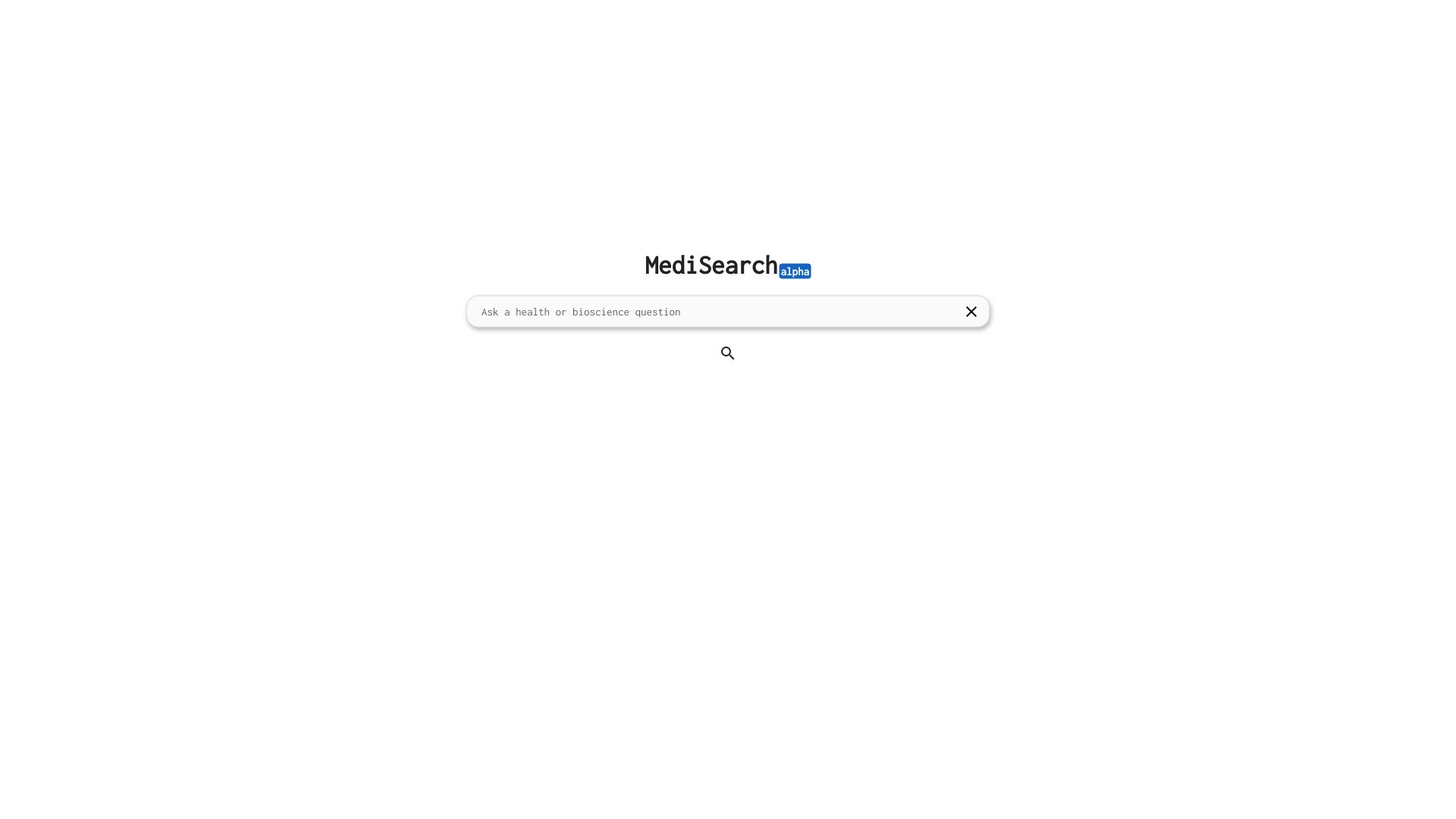
MediSearch
Open Website-
Tool Introduction:Ask any medical question; get evidence-based answers in seconds.
-
Inclusion Date:Oct 28, 2025
-
Social Media & Email:
Tool Information
What is MediSearch AI
MediSearch AI is a medical search engine that delivers concise, evidence-based answers to health questions in seconds. Built to surface trustworthy information, it synthesizes findings from peer-reviewed studies, clinical guidelines, and reputable health organizations, then cites its sources for transparency. Users can ask plain-language questions, explore linked references, and refine follow-ups to reach clearer understanding faster. The result is a focused, reliable starting point for research, education, and informed health discussions.
MediSearch AI Features
- Direct, evidence-based answers: Provides concise summaries to medical questions grounded in credible literature and guidelines.
- Source transparency: Includes citations and links to original references so users can verify claims and read in context.
- Trustworthy sources: Surfaces content from peer-reviewed journals, clinical guidelines, and reputable health organizations.
- Plain-language querying: Accepts natural language questions, reducing the need for complex search operators.
- Follow-up refinement: Supports iterative questioning to clarify terms, compare options, or narrow the scope.
- Noise reduction: Filters out low-quality results and focuses on clinically relevant, authoritative information.
- Structured summaries: Highlights key points, typical indications, contraindications, and outcomes when available in sources.
- Research starting point: Helps users quickly locate references before diving into full-text articles.
Who is MediSearch AI For
MediSearch AI suits clinicians and allied health professionals seeking quick, cited overviews; medical and nursing students learning to appraise sources; health writers and editors verifying facts; patient educators creating accurate materials; and informed patients or caregivers looking to understand conditions and treatments. It also supports health-tech teams and librarians who need fast, credible starting points for deeper literature reviews.
How to Use MediSearch AI
- Enter a clear medical question in plain language (e.g., “first-line therapy for mild persistent asthma in adults”).
- Review the concise answer and scan the cited sources for context and strength of evidence.
- Open the linked references to read abstracts, guidelines, or full texts when available.
- Refine with follow-up prompts (e.g., “compare with pediatric guidance” or “adverse effects”).
- Cross-check key claims in the original sources before making decisions or publishing content.
- Save citations or notes for your literature log, and consult a qualified professional for personalized medical advice.
MediSearch AI Industry Use Cases
Clinical workflow: A primary care team quickly locates guideline-backed recommendations to inform a patient education handout.
Medical education: Students use cited summaries to prepare for journal clubs and learn how to trace claims back to sources.
Health communications: Writers verify statistics and treatment summaries with references before publishing patient-facing articles.
Pharmacovigilance support: Analysts scan recent literature for safety signals and follow citations to evaluate evidence quality.
MediSearch AI Pros and Cons
Pros:
- Fast, concise answers grounded in reputable medical sources.
- Transparent citations enable verification and deeper reading.
- Natural language queries reduce search complexity.
- Follow-up prompts help refine and compare information.
- Reduces noise from unverified or low-quality web content.
Cons:
- Not a substitute for professional medical advice or clinical judgment.
- Summaries may omit nuances; users should read original sources.
- Coverage of the very latest studies can vary; always check publication dates.
- Complex cases may require comprehensive database searches and specialist input.
MediSearch AI FAQs
-
Question 1: Where does MediSearch AI get its information?
It prioritizes peer-reviewed research, clinical guidelines, and reputable health organizations, providing citations so users can verify the evidence.
-
Question 2: Can MediSearch AI replace a doctor?
No. It is an information tool and does not provide medical advice. Always consult a qualified professional for diagnosis or treatment decisions.
-
Question 3: How should I evaluate an answer?
Check the citations, read the source context, review publication dates, and consider evidence strength before acting on any information.
-
Question 4: Does it cover patient-friendly language?
You can ask questions in plain language. For public-facing materials, verify readability and accuracy against the cited sources.
-
Question 5: Is it suitable for literature reviews?
It works well as a starting point to find relevant, cited references. For systematic reviews, pair it with comprehensive database searches and formal appraisal methods.
